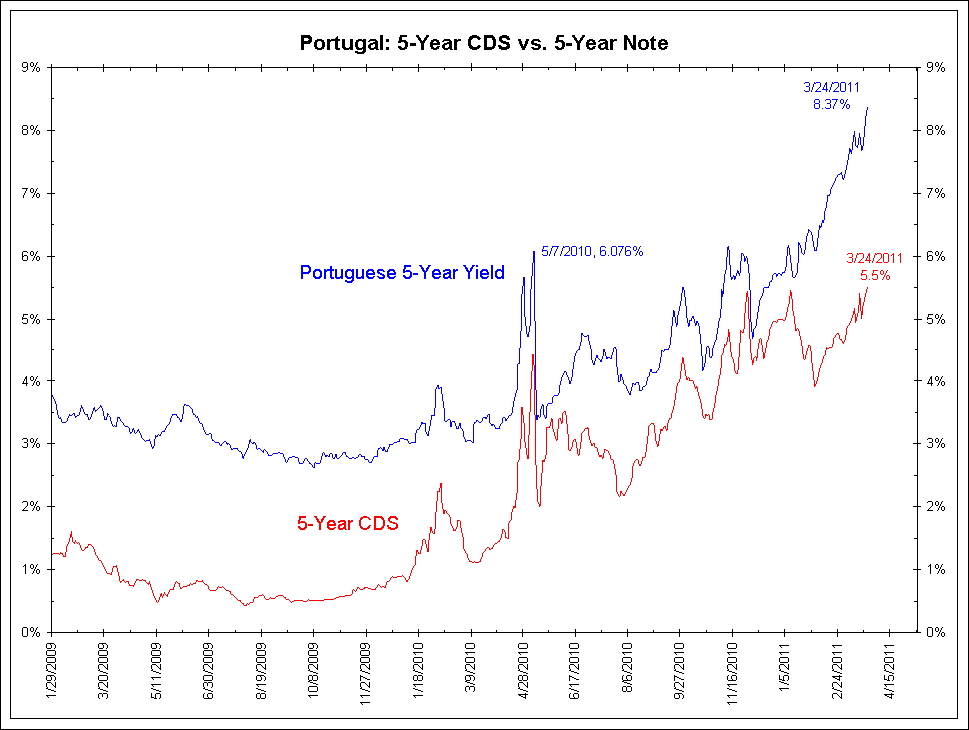>
• BusinessWeek – Portugal’s Bonds Slump as Prime Minister Quits Over Budget Cuts
Portuguese bonds led a slide by securities of the most indebted European nations as the resignation of Prime Minister Jose Socrates fuelled concern the southern European country may need a bailout. Two-year Portuguese yields reached the highest since 1999. Spanish bonds fell as Moody’s Investors Service cut credit ratings on 30 of the country’s lenders. European Union leaders are meeting in Brussels today to seek a solution to the debt crisis that forced Greece and Ireland to seek financial aid. Irish bonds slumped as LCH Clearnet Ltd. said it will increase the extra deposit required for clients to trade the securities. Socrates’s resignation is “another nail in the coffin in terms of a bailout package,” said David Schnautz, a fixed- income strategist at Commerzbank AG in London. “In terms of Ireland, Greece and Portugal, this may be another underlying burdening factor. It doesn’t seem to be the case that you can say that the possibility of default is off the table.”
• The Wall Street Journal – Portugal Crisis Overshadows EU Summit
The collapse of Portugal’s government and disagreement over financing the region’s bailout funds threaten to overshadow a key summit meeting of European Union leaders beginning Thursday. The two-day summit—the culmination of a string of meetings across the continent in recent weeks between leaders and finance officials—has been seen as a key chance for the region to turn its back on the debt crisis by embracing deep reforms. But political turmoil in Portugal has added a new stumbling block. Portugal’s parliament late Wednesday rejected a new government austerity plan, prompting Prime Minister José Socrates to submit his resignation and setting off a new phase in Europe’s sovereign-debt crisis. The failure to pass the measure threatened to push already-high government borrowing costs to unaffordable levels and force Lisbon to seek a bailout. The extra yield demanded by investors to hold 10-year Portuguese bonds instead of haven German bunds widened by 0.1 percentage points to 4.52 percentage points. If Portugal does seek a bailout, it would be the third euro-zone member to turn to other members of the European Union and the International Monetary Fund, after Greece and Ireland went first.


